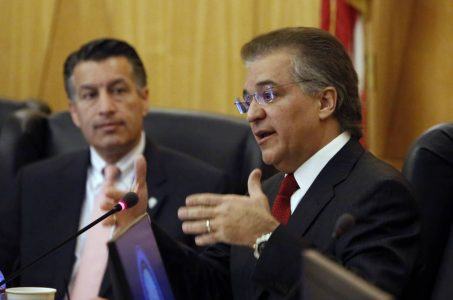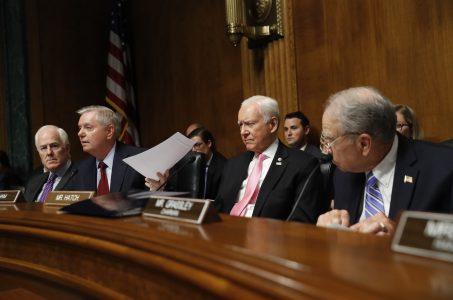Federal Judge Refuses to Dismiss New Hampshire vs. DOJ Wire Act Case
Posted on: April 12, 2019, 06:21h.
Last updated on: April 12, 2019, 07:19h.
A federal judge in New Hampshire said Thursday that the issues surrounding the Department of Justice’s new Wire Act opinion — and the New Hampshire Lottery Commission’s (NHLC) ensuing legal challenge — were some of the most complex he had encountered in 26 years of service. He added that whatever his eventual ruling may be, the case is likely to end up in the Supreme Court.

However, US District Court Judge Paul Barbadoro refused the DOJ’s request to dismiss the NHLC case for lack of standing.
The Union Leader reports that almost 20 lawyers were present in the courtroom, representing clients ranging from the states of Michigan, New Jersey and Pennsylvania, which have filed amicus briefs in support of New Hampshire, as well as the Coalition to Stop Internet Gambling and the National Association of Convenience Stores, which support the DOJ.
Lotteries ‘Under Review’
At issue is the DOJ’s Office of Legal Counsel’s updated opinion of the 1961 federal Wire Act — which deals with intrastate gambling. The new opinion, of December 2018, states the act’s prohibitions are “not uniformly limited to gambling on sporting events or contests,” a statement with the potential to torpedo online lottery and gaming operations across the United States.
It reverses an Obama-era declaration from 2011 that ultimately paved the way for state-sanctioned online gambling and lottery sales.
The NHLC has asked for a declaratory ruling that the Wire Act does not apply to forms of gambling other than sports betting; the Wire Act does not apply to states; and that the 2018 opinion is invalid.
The DOJ had argued that the case lacks standing because fails “to identify a credible threat of prosecution” — i.e., the DOJ has made no legal threat against the NHLC’s operations.
To strengthen that argument, the DOJ said in a filing Monday that the Wire Act reinterpretation had not addressed state lotteries and their vendors, adding that the Office of Legal Counsel is now “reviewing” that question.
“That letter does not convince me that I should dismiss this case for lack of standing, nor does it convince me that this case is moot,” said the judge, as reported by OnlinePokerReport.
Bad Grammar
Much of the hearing was devoted to the discussion of the grammar and punctuation of the statute of the Wire Act that is the bone of contention between the two parties. As OPR notes, “which clauses one groups with others can drastically affect the interpretation.” The statute states:
Whoever being engaged in the business of betting or wagering knowingly uses a wire communication facility for the transmission in interstate or foreign commerce of bets or wagers or information assisting in the placing of bets or wagers on any sporting event or contest, or for the transmission of a wire communication which entitles the recipient to receive money or credit as a result of bets or wagers, or for information assisting in the placing of bets or wagers, shall be fined not more than $10,000 or imprisoned not more than two years, or both.”
The judge shot down the claim by both parties that the passage is unambiguous in its meaning, calling it “a mess of a statute” and adding that sometimes people who write laws are imperfect grammarians. However, he did appear to see reason in the plaintiff’s interpretation.
“Why would [the second clause] criminalize the use of wires to receive money for doing something that is lawful under the first clause?” he asked.
The judge gave the DOJ two weeks to clarify its stance on whether it believes the Wire Act applies to states, after which the he will deliver his verdict in writing.
Related News Articles
Most Popular
FTC: Casino Resort Fees Must Be Included in Upfront Hotel Rates
Genovese Capo Sentenced for Illegal Gambling on Long Island
NBA Referees Expose Sports Betting Abuse Following Steve Kerr Meltdown
UPDATE: Former Resorts World & MGM Grand Prez Loses Gaming License
Most Commented
-
UPDATE: Whiskey Pete’s Casino Near Las Vegas Closes
— December 20, 2024 — 32 Comments -
Caesars Virginia in Danville Now Accepting Hotel Room Reservations
— November 27, 2024 — 9 Comments -
UPDATE: Former Resorts World & MGM Grand Prez Loses Gaming License
— December 19, 2024 — 8 Comments -
FTC: Casino Resort Fees Must Be Included in Upfront Hotel Rates
— December 17, 2024 — 7 Comments
















No comments yet